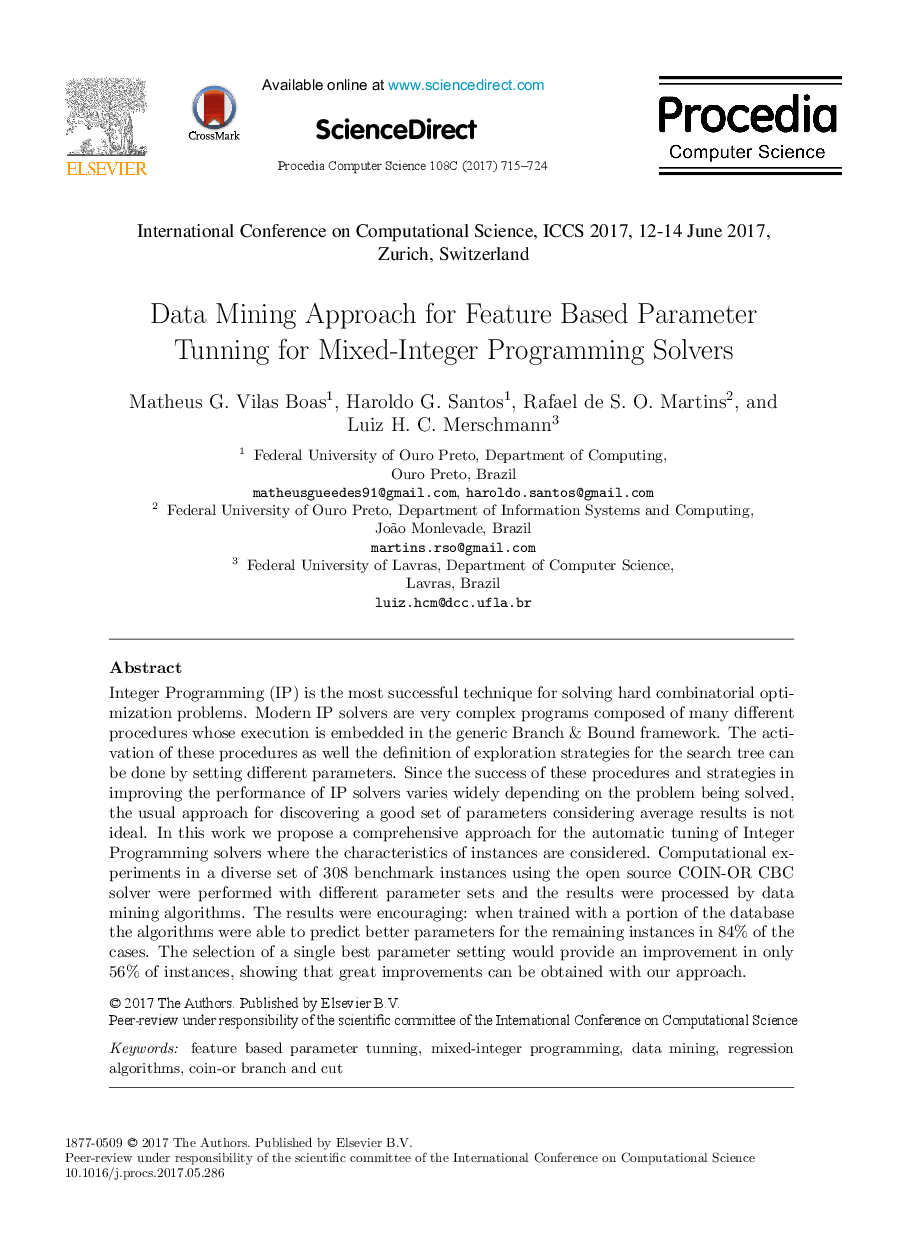ترجمه فارسی عنوان مقاله
معیار داده کاوی برای اجرای پارامترهای مبتنی بر ویژگی برای حل کننده های برنامه ریزی عدد صحیح
عنوان انگلیسی
Data Mining Approach for Feature Based Parameter Tunning for Mixed-Integer Programming Solvers
| کد مقاله | سال انتشار | تعداد صفحات مقاله انگلیسی |
|---|---|---|
| 107868 | 2017 | 10 صفحه PDF |
منبع

Publisher : Elsevier - Science Direct (الزویر - ساینس دایرکت)
Journal : Procedia Computer Science, Volume 108, 2017, Pages 715-724
ترجمه کلمات کلیدی
تابع پارامترهای مبتنی بر ویژگی، برنامه ریزی عدد صحیح مخلوط داده کاوی، الگوریتم های رگرسیون، سکه یا شاخه، برش،
کلمات کلیدی انگلیسی
feature based parameter tunning; mixed-integer programming; data mining; regression algorithms; coin-or branch; cut;

